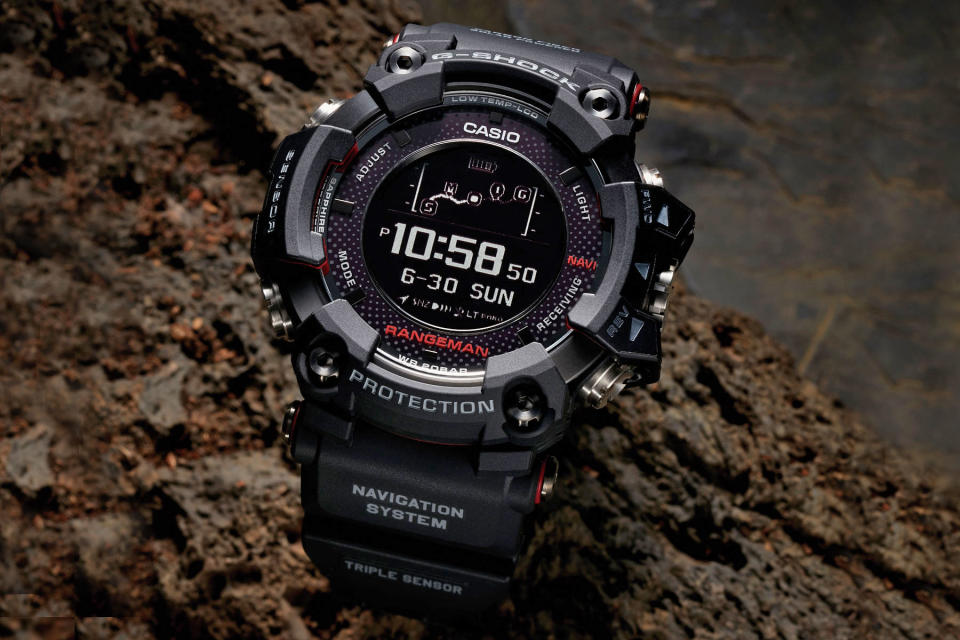Casio's solar-powered GPS watch is ideal for survivalists
If you run out of battery in a danger situation, you can use the built-in solar panel to charge the GPS.
Casio's beloved line of G-Shock timepieces is widening to include the new GPR B-1000, a GPS-equipped timepiece that could just save your life. The watch, which forms part of the Rangeman line, is capable of standalone GPS navigation for up to 33 hours on a single charge. But more importantly, if you're in the wilderness for longer than that, you can use the built-in solar panel to keep the GPS running for longer. Which should mean that there's no excuse for Blair Witch-style idiocy so long as you've got one of these on your wrist.
The solar panel in the face keeps the dial running at all times, and is also used as an auxiliary charger for the smarter watch functions. Leave the watch in bright, direct sunlight for four hours, and you'll get an hour or so of GPS navigation. If you're at home, however, you can simply dump the G-Shock on its wireless charging plate and it'll be back to full strength in just five hours. The wireless charging is possible because the back of the watch case has been made out of ceramics — another first for the G-Shock line — measuring just 2mm thick.
If you're a Bear Grylls-type and you're looking for a watch that'll withstand everything the elements can throw at it, this may be the watch for you. It's designed to work in temperatures as low as -4 Fahrenheit and depths as low as 200 meters, and is packing a carbon fiber insert band and sapphire crystal. As for pricing, the B-1000 will be available to buy in April and will set you back $800 from the selected high-end watch boutique of your choice.
At the same time, Casio has announced a limited edition of its Pro Trek Smart series of watches in a special color scheme. Just 1,5000 Pro Trek WSD-F20WEs will be produced, each one clad in a glorious fluorite white body that, the company promises, offers a deep multilayer finish with crystalline depth. The watches will be available in Spring, but the company has remained tight-lipped so far on how much they'll cost you.
Click here to catch up on the latest news from CES 2018.


